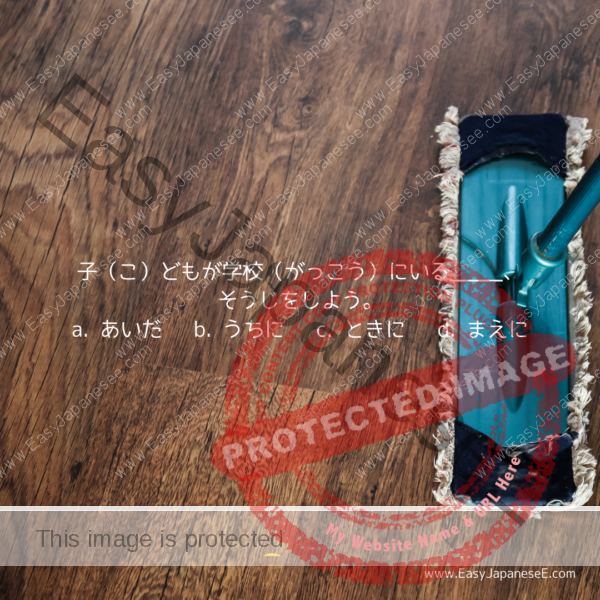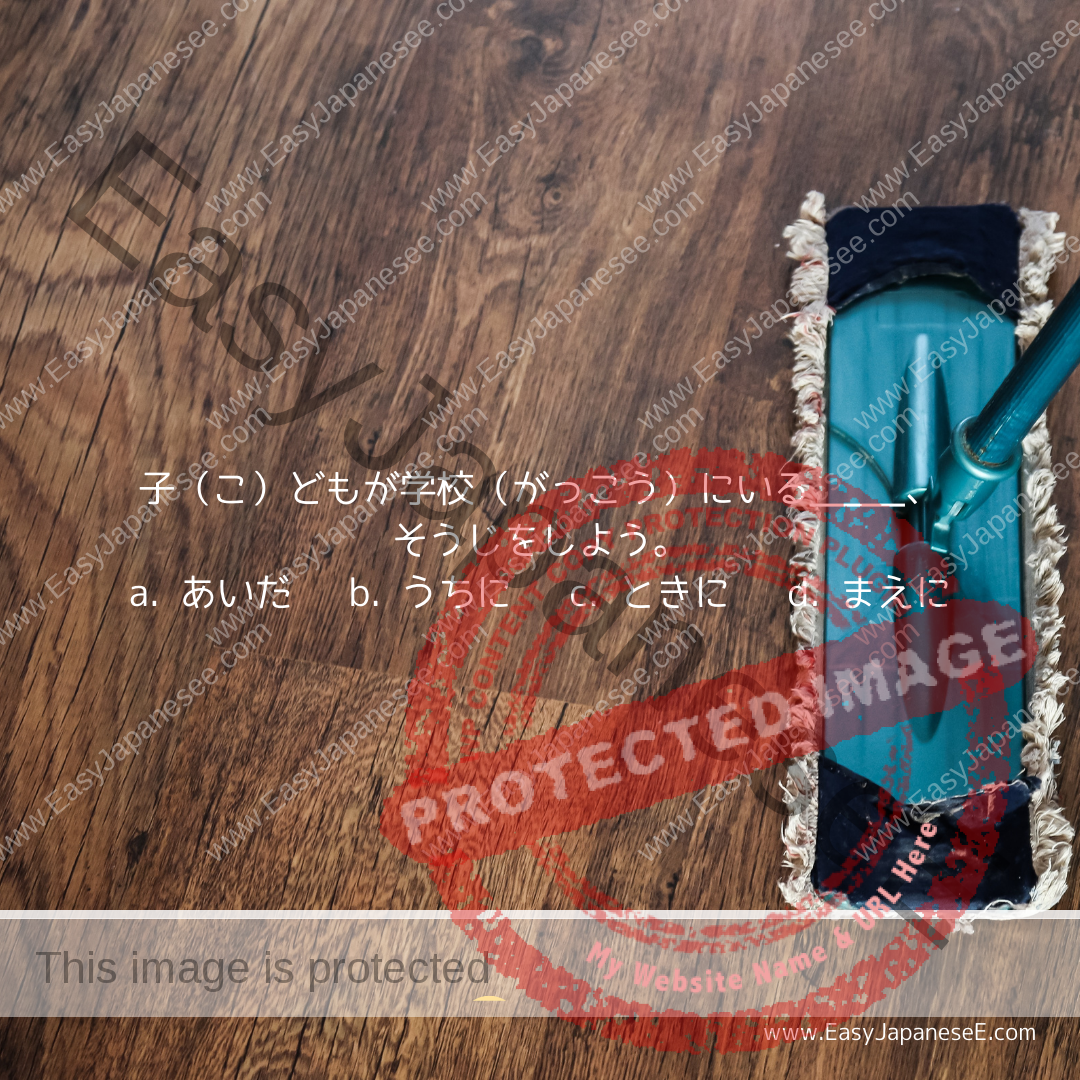
子(こ)どもが学校(がっこう)にいる 、そうじをしよう。
a. あいだ b. うちに c. ときに d. まえに
The intended meaning is: While my child is at school, I will clean (the house).
The correct answer at all times is b. うちに.
The wrong answer is d. まえに which sounds very awkward.
a. あいだ and c. ときに are OK if you mean it that way.
If you have picked a. あいだ, that means you are going to clean the house for the whole duration when your child is at school. If you use あいだに, the meaning is a lot closer to うちに although あいだに has less urgency than うちに, which is like if we don’t do it then, we may never be able to do it afterwards…
c. ときに is not wrong either but the word とき is very specific, so that kind of implies that I won’t clean when children are not at school.
Connection of うちに
[noun] の うちに
学生(がくせい)のうちに海外(かいがい)旅行(りょこう)した方(ほう)がいいよ。
You’d better travel abroad while you are a student.夏(なつ)休(やす)みのうちに海(うみ)に行(い)こう。
Let’s go to the beach during the summer holidays.
[いadjective] うちに
熱(あつ)いうちに召(め)し上(あ)がってください。
Please eat it while it’s hot.明(あか)るいうちにうちに帰(かえ)ろう。
Let’s go home while it’s light.
[なadjective] な うちに
新鮮(しんせん)なうちに冷凍(れいとう)しましょう。
Let’s freeze it while it’s fresh.両親(りょうしん)が元気(げんき)なうちに日本(にほん)に帰(かえ)ろう。
I’ll go back to Japan while my parents are well.
[てform] いる うちに
父(ちち)が出(で)かけているうちに車(くるま)を借(か)りた。
I borrowed his car while my father went out.赤(あか)ん坊(ぼう)が寝(ね)ているうちにばんごはんを食(た)べよう。
While the baby is asleep, I will eat dinner.
[dictionary form of a stative verb] うちに – Verbs that describe a condition, rather than an action. Examples are ある、いる、できる, etc. These verbs cannot be used in ~ている form.
シドニーにいるうちに東京(とうきょう)マートに行(い)こう。
I will go to Tokyo Mart while I’m in Sydney.できるうちにしておこう。
I’ll do it while I can.
EasyJapaneseE’s Basic Grammar Exercise Modules
Following short modules are available for subscription! Click the name of a module for more information.


One Reply to “~うちに”